Bipartisan Group Of Lawmakers Push To Solidify US Sanctions On Iran
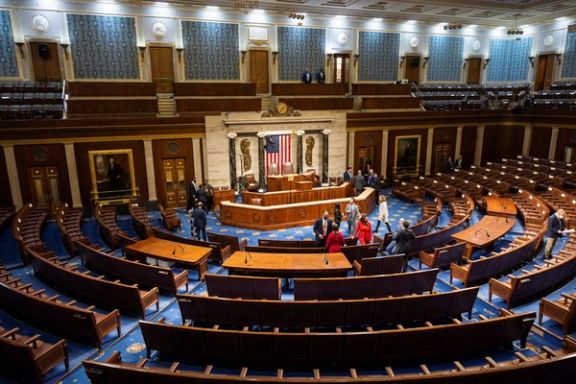
A bipartisan group of the US House lawmakers are set to introduce legislation Thursday that would solidify Washington’s sanctions against Iran no matter the result of nuclear talks.

A bipartisan group of the US House lawmakers are set to introduce legislation Thursday that would solidify Washington’s sanctions against Iran no matter the result of nuclear talks.
According to Fox News on Thursday, the legislation, titled the Solidify Iran Sanctions Act (SISA), would create a necessary deterrent by targeting the country's energy sector and making it more difficult to finance terrorist operations or develop ballistic missiles.
Republican Representative Michelle Steel from California, who is leading the bill in the House, said that "From brutal abuses committed against its own people, to its never-ending threats towards free and democratic societies, the Iranian regime has proven time and again that they are a rogue state with no interest in preserving regional or global peace.”
Stressing the need to prevent “the unacceptable threat of a nuclear Iran from becoming a reality,” he said, “Existing sanctions have proven successful in preventing such a catastrophe, and we must ensure that we can continue to place economic and strategic pressures on Iran to prevent them from developing nuclear weapons or supporting terrorists.”
Steel said he is cooperating with Senator Tim Scott (R-SC) on this issue to lead the bipartisan group in the House on the bill, which would require the "imposition of sanctions with respect to Iran’s illicit weapons programs, conventional weapons and ballistic missile development, and support for terrorism, including Iran’s Revolutionary Guards Corps (IRGC)."
Last month, Scott, along with several other senators, introduced the Senate version of the legislation, designed to make the Iran Sanctions Act of 1996 permanent.

A 22-year-old Iranian woman, identified as Mahsa Amini, died Friday after being severely beaten in the head by the Islamic Republic’s “morality” police.
The Islamic Republic’s police told Iranian media that Amini suffered a heart attack while detained by morality police, denying reports that she had been beaten.
Iran International has learned that Amini was not feeling well and had symptoms similar to concussion when she was taken to the Vozara detention center, where the morality police take all those arrested across the capital Tehran.

According to reports, the young girl – originally from Saqqez in Kurdistan province -- was visiting her relatives with her family in Tehran when she was arrested on Tuesday evening by hijab enforcement officers.
After protest by Mahsa's brother, who was with her when she was arrested, the officers said that they would take her to the Vozara street detentions center for a "briefing class" and will be released after an hour.
Her uncle said on Thursday that his niece’s heart was not functioning properly and her kidneys had failed, adding that her doctors told the family that they cannot do anything for her.
In recent months government and security agencies have intensified their efforts to pressure women into abiding by the hijab laws and several rounds of anti-hijab civil disobedience campaigns have followed.
Patrols by ‘morality police’ have increased on the streets and videos of violent arrests of women and girls as well as confrontations between people and hijab enforcers.
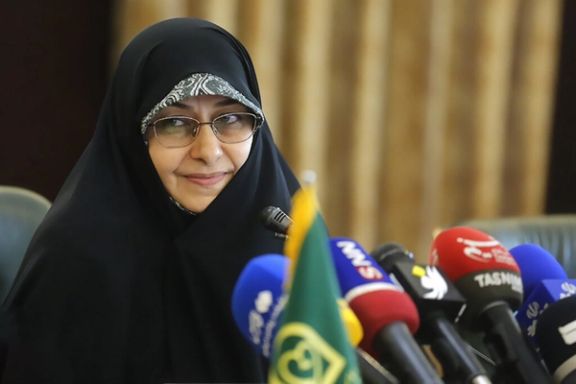
A Canadian journalist has criticized Ottawa for spreading a “lush welcome mat” for rich Iranians linked to the regime but refusing visas to relatives of Flight PS752 victims.
In an article published by the National Post Wednesday, author and journalist Terry Glavin said Ottawa has allowed an Iranian vice president’s son to live and work in British Columbia while refusing visas to relatives of Iranian victims of Ukraine Airlines Flight PS752.
The flight was shot down by the Revolutionary Guards (IRGC) missiles in January 2020, and relatives of those killed in the tragic event wanted go to Canada for memorial services. Ontario's Superior Court of Justice has ruled that IRGC’s downing of the flight was intentional.
In his article Glavin referred to frequent visits of high-ranking former Revolutionary Guards officials such as former police chief of Tehran, Morteza Talaei, and former brigadier-general Alireza Razm-Hosseini, in the past few years and said Razm-Hosseini was “free to wander Canada’s streets as though Ottawa and Tehran were on intimate speaking terms.”
“Allowing Talaei to freely enter Canada sends a dangerous message; a message that is an affront to Iranians who have themselves sought refuge in Canada,” several human rights groups said in an open letter in February.
Canada broke off diplomatic relations with Iran in 2012, citing its support for the Syrian government, non-compliance with United Nations resolutions over the nuclear program, and fears for Canadian diplomats after protestors stormed the British embassy.
Over the past five years, the federal Start-Up Visa (SUV) Program has been a wildly popular way for Iranian entrepreneurs to obtain permanent resident status in Canada. Since 2015, Immigration, Refugees and Citizenship Canada has received a total of 3,203 permanent-resident applications from 70 countries via the SUV program. Of those applicants, 615 were Iranians.
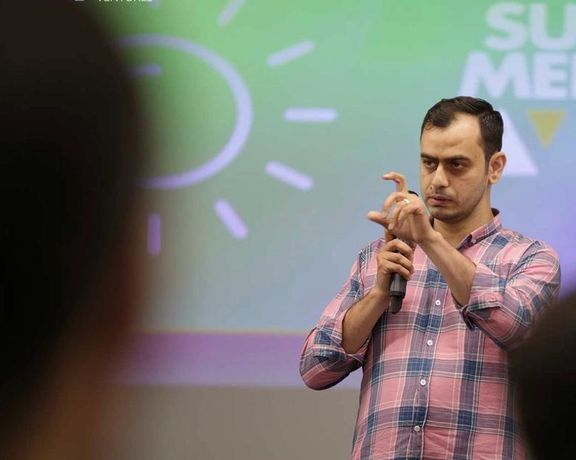
Glavin also mentioned the more recently revealed case of Hamid Rezazadeh, Iranian Vice President for Women and Family Affairs, Ensieh Khazali's son, who has been living and working in Canada for several years.
Khazali has denied her son's immigration to Canada and claimed he is there only on a short visit for further "knowledge-based" research. This is one of the favorite terms of Iran's Supreme Leader Ali Khamenei who has nicknamed the current year as "the year of knowledge-based production."
But social media activists have provided some evidence that Rezazadeh is running a company in Canada that sells a VPN application called Betternet to circumvent government censorship of the Internet inside Iran. Vice president Khazali is an advocate of limiting Iranians' access to the Internet.
According to National Post, applicants for the visa program are required to show that their business ideas are backed by at least $200,000 from one of a variety of federally designated organizations in Canada that operate as venture capital funds, “angel investor” groups or business “incubators.”
In May 2018, Betternet showed up in the Portfolio of 7 Gate Ventures’ investment, designated by Ottawa as a qualifying venture-capital company, as a VPN that promises access to blocked websites with a capacity to bypass internet censorship firewalls, encrypt data and guarantee online privacy, the National Post said.
Whistleblowers and activists in Iran have also revealed that some other hardliner officials’ children including Tehran Mayor Alireza Zakani, and former Majles Speaker Gholam Ali Haddad Adel are also living abroad.
Hardliners have used emigration issue against rivals including former moderate conservative former Majles Speaker Ali Larijani who was barred from running for president in 2021 on accusations that his daughter lived abroad.
In May this year, General Morteza Mirian, commander of Iran’s Revolutionary Guards’ ground forces, claimed that 4,000 relatives of “senior officials”live in the United States, Canada, and Europe.
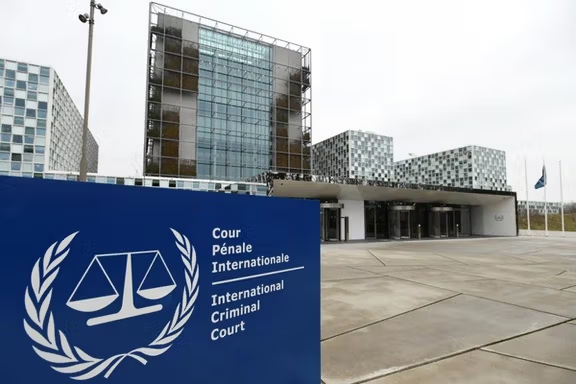
The families of victims aboard a Ukrainian flight that was shot down by Iran in 2020 called on the International Criminal Court to investigate the case as a war crime or crime against humanity.
Lawyers representing families said on Wednesday that the Association of Families of Flight PS752 Victims submitted an Article 15 Communication to Office of the Prosecutor of the ICC, providing information and evidence about crimes that occurred when Iranian missiles brought down Ukraine International Airlines Flight PS752.
The request was submitted in accordance with Article 15 of the Rome Statute, alleging that perpetrators have committed certain war crimes and crimes against humanity against the passengers and crew of flight PS752 and their surviving family members, including the war crimes of willful killing, intentionally directing attacks against the civilian population or civilian objects, outrages upon personal dignity and pillage, as well as other inhumane acts.
"The affected countries -- especially Canada -- have acted with a glacial pace that has been marred by bureaucracy and a wishful thinking attitude toward a meaningful negotiation with the Islamic Republic of Iran," said spokesperson for the association representing the families, Hamed Esmaeilion, whose wife and nine-year-old daughter died onboard the flight.
The airliner was shot down by two air-defense missiles fired by the IRGC on January 8, 2020, as it took off from Tehran’s Imam Khomeini International Airport. Only hours earlier, the IRGC had fired more than a dozen missiles at Iraqi bases hosting US and coalition troops in retaliation for the killing of the IRGC Qods Force Commander Ghasem Soleimani who was killed in Baghdad by a US drone strike just five days earlier.
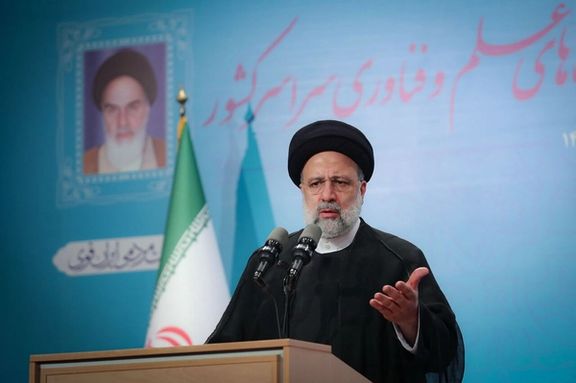
As pressure mounts on the Biden administration to deny visa for Iran’s president to attend the UN Assembly, the Senate is preparing a bill to bar all officials tied to the Supreme Leader.
Although the Biden administration says it is "obligated" to allow the hardline president Ebrahim Raisi into the country to attend the United Nations' General Assembly, Republican Senator Ted Cruz is circulating a bill that would alter the law to facilitate a visa ban on all Iranian officials sanctioned for their ties to Ali Khamenei, the country's ruler, the Washington Free Beacon reported on Wednesday.
The proposed bill is likely to attract bipartisan support due to the failure of an earlier pressure campaign over the Biden administration’s insistence on its obligation under US law to issue a visa. A bipartisan group of 52 US representatives wrote a letter to the White House earlier this month calling on President Joe Biden to deny "entry visas" for Raisi and his delegation.
However, Cruz’s proposed bill -- which may be cited as the "Strengthening Entry Visa Enforcement and Restrictions Act of 2022" or the "SEVER Act of 2022" -- would formalize efforts in Congress to pressure the administration into barring Raisi due to Tehran's active plots to assassinate US officials such as former secretary of state Mike Pompeo and former national security adviser John Bolton.
"The United States is absolutely able to deny entry to anyone who threatens our national security," Cruz told the Washington Free Beacon. "Raisi is a mass-murdering terrorist who was handpicked by the ayatollah -- and he's coming to the United States while there are Iranian agents trying to murder former American officials and dissidents on American soil."
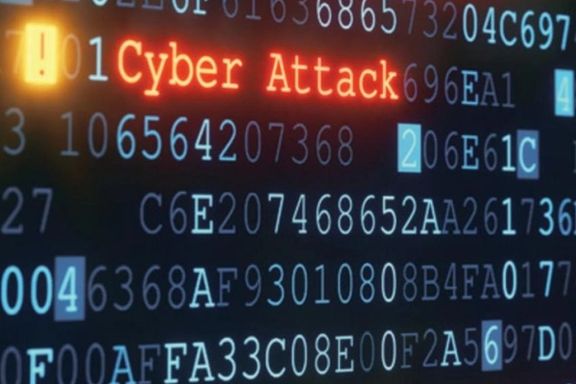
The United States Wednesday slapped new sanctions on individuals and entities linked to Iran's Revolutionary Guards for Tehran's "malicious" cyber activities.
The US Department of the Treasury’s Office of Foreign Assets Control (OFAC) sanctioned ten individuals and two companies, Najee Technology and Afkar System, over their roles in conducting malicious cyber acts including ransomware activity, the Treasury said in a press release.The Treasury Department had also sanctioned Iran’s intelligence ministry for “cyber operations” against the US and its allies on Friday.
“We will continue to take coordination action with our global partners to combat and deter ransomware threats, including those associated with the IRGC,” said Brian E. Nelson, under secretary of the Treasury for terrorism and financial intelligence.
The United States and its European allies have intensified warnings over the activitiesof hackers and cyber-espionage threat actors believed to be sponsored by the Islamic Republic of Iran following reported Iranian cyber operations against Albania, a NATO member.
The Western warnings and US sanctions come as 18-month-long negotiations to revive the 2015 nuclear deal with Iran have hit a snag, with Tehran hardening its position.
Tirana cut diplomatic ties with Tehran due to a cyberattack in July that temporarily disrupted government websites and services.
The US Treasury Department on September 9 sanctioned Iran’s intelligence ministry for “cyber operations” against the US and its allies, a day after White House and NATO allies condemned the July attack which happened around the time of a conference of the exiled Iranian Albania-based opposition group Mujahideen-e Khalq (MEK).
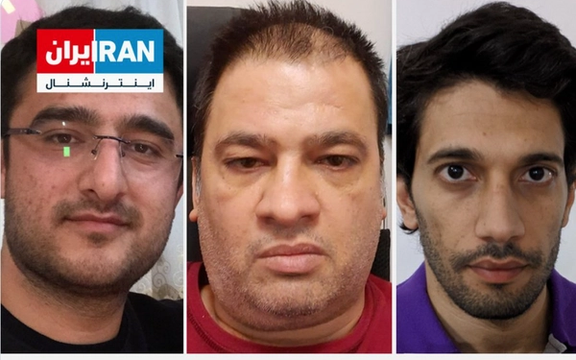
In early August, cybersecurity firm Mandiant expressed “moderate confidence” the attackers were acting in support of Tehran’s efforts to disrupt the MEK conference, which had to be cancelled as well due to a terror threat.
Microsoft also announced Monday that it has been tracking hacking activities by an Iran-linked group, known as DEV-0343, that targeted US and Israeli defense and other key companies. ““DEV-0343 continues to evolve their techniques to refine its attacks,” the report said.
Iran’s foreign ministry Thursday rejected accusations about the alleged cyberattack. Relations between Tehran and Tirana have been tense since 2014, when Albania accepted some 3,000 members of the MEK.
Albania’s interior ministry on Saturday accused Tehran of another attack on its government computer systems on Friday that forced Tirana to temporarily take its Total Information Management System (TIMS) offline. Albanian Prime Minister Edi Rama said on Twitter the cyberattack was carried out by the “same aggressors” behind the July hack.
Hackers and cyber spies allegedly working for Iran have also been accused of targeting those specializing in Middle Eastern affairs or nuclear security including academics, policymakers, diplomats, journalists, as well as human rights activists who focus on Iran.
These threat actors have improved and polished their technics over the years. According to a Wednesday report by Security firm Proofpoint in mid-2022, the Iran-aligned threat actor known as TA453 deployed a new social engineering impersonation technique informally called ‘Multi-Persona Impersonation’ (MPI) by Proofpoint.
MPIis based on the psychology principle of social proof and involves using at least two personas on a single email thread to convince phishing targets of the legitimacy of the threat actor’s emails.
According to Proofpoint researchers, in a standard TA453 campaign, the threat actor masquerades as an individual such as a journalist working to collaborate with the intended target. TA453 has targeted academics, policymakers, diplomats, journalists, and human rights workers, they said.